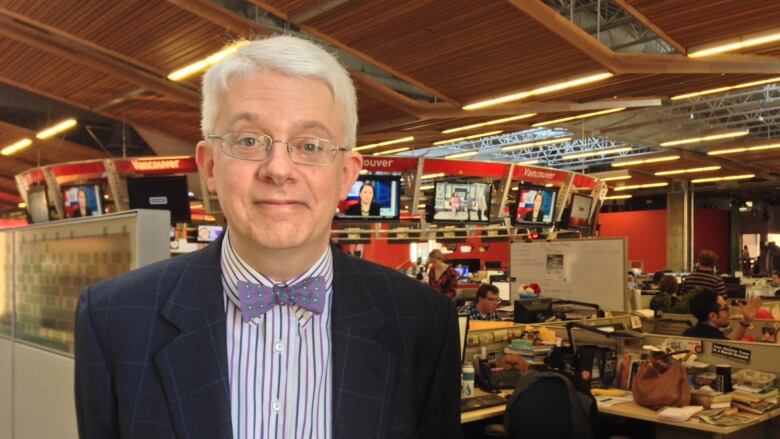Transit referendum: good politics but bad governance?
Referendums more about political buy-in than effective leadership, says SFU professor Anthony Perl

The upcoming transit referendum in Metro Vancouver is a political plan, not a way to make transportation decisions for the good of our region, says a professor at Simon Fraser University.
"It's a form of political insurance policy that our leaders have chosen to go with,"saidAnthony Perl, a professor of urban studies and political science atSFU.
Next week, ballots for the plebiscitewill be in the mail asking Metro Vancouver residents if they would pay half a per cent more PST to help invest in 10 years oftransportation projects for the region.
- Full coverage of the Metro Vancouver transit referendum
- How to vote in Metro Vancouver's transit referendum
- Transit referendumcould be about something much bigger thantax increase
Perl cites the example of thehistoric referendum of 2011, which saw the public reject the HST brought in by the Liberalgovernment only two years before, despite much public opposition.
Based on that experience, the Liberals may have decided it would be safer to put the regional transportation tax to a vote, says Perl.
Premier Christy Clark first promised during the 2013 provincial election the government would hold areferendum on any new transit funding in Metro Vancouver, but the ideainitially failed to gain the support of the region's mayors.
Since that time several mayors signed on, including Vancouver Mayor Gregor Robertson, and in Dec. 2014, the TransLink'sMayors' Council agreed to a plebiscite question, which was approved by the B.C. government.
'Better forms of leadership'
But Perl isnot convinced a referendum is the best way to move the issue forward.
"There are better forms of leadership," said Perl. "Good leadership is something that creates a decision that people can live with for the future."
Perl points out that many major transportation projects, like the Port Mann bridge and the Massey Tunnel, are not put to a public vote.
Instead, the public relies on provincial leaders to make those decisions as elected representatives.
He says he would have preferred a public engagement process that would have prompted feedback from the public.
"It would have been much more deliberative, much more of a two-way street in terms of dialogue and communication," said Perl.
The upcoming referendum is a non-binding vote, meaning that provincial leaders could technically disregard the outcome. But Perl says that's unlikely.
"It would be hard to ignore the vote," said Perl. "Democracy is not easy to turn your back on once you've set it out."
To listen to the full interview, click on the audio labelled: Referendums: good governance or good politics?
This article is part of a week-long series produced by On the Coast about Metro Vancouver's upcoming transportation referendum.












_(720p).jpg)


 OFFICIAL HD MUSIC VIDEO.jpg)
.jpg)



























































































